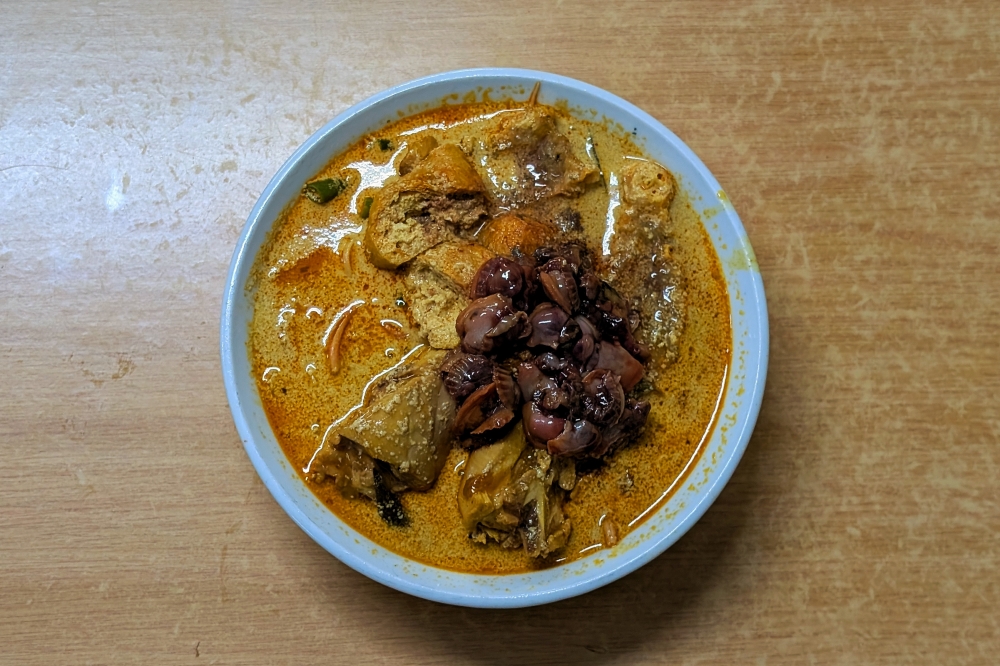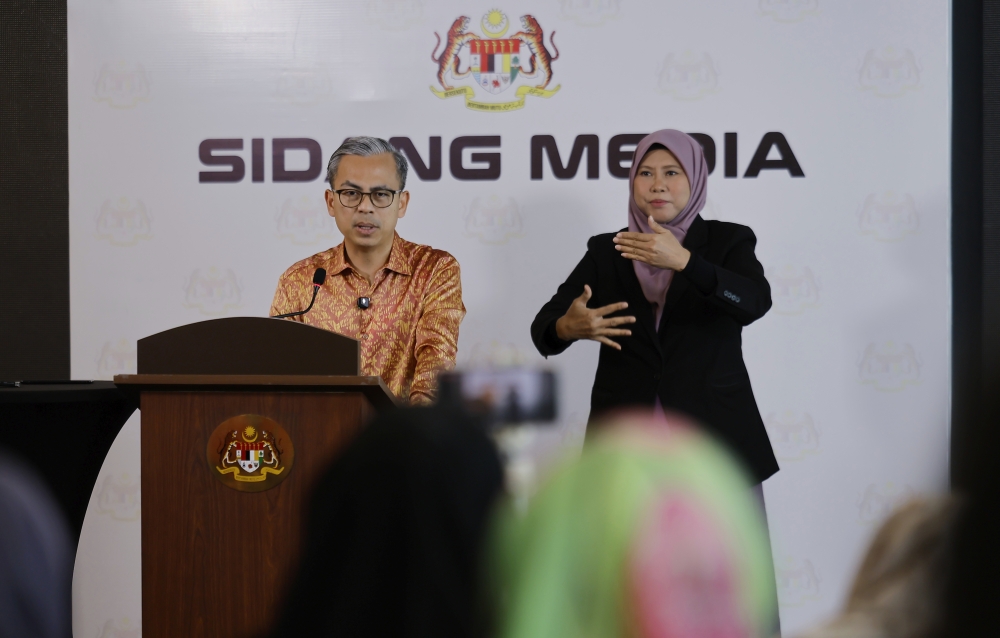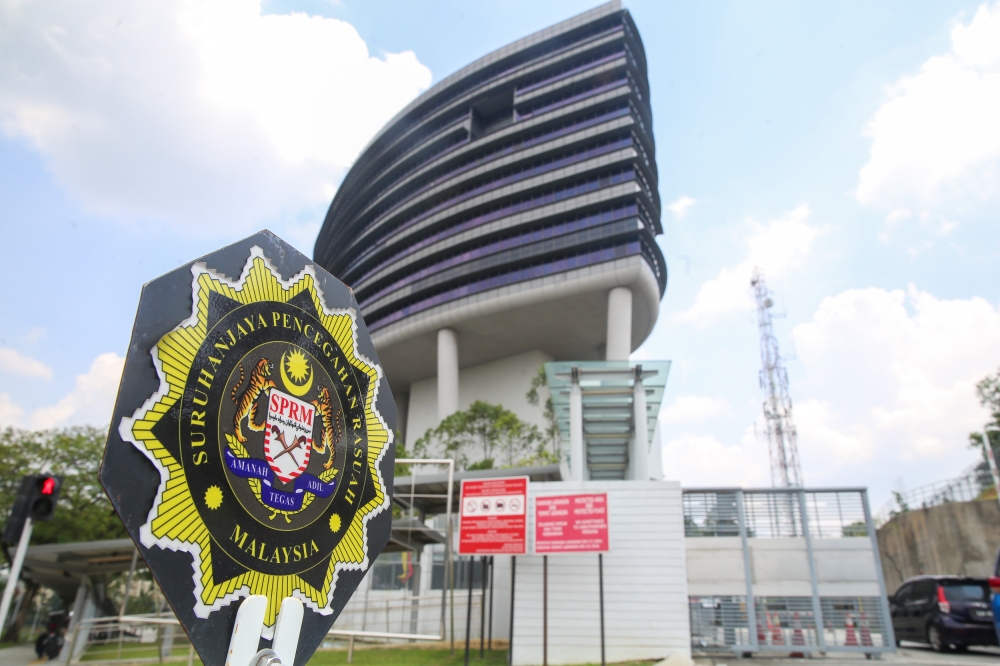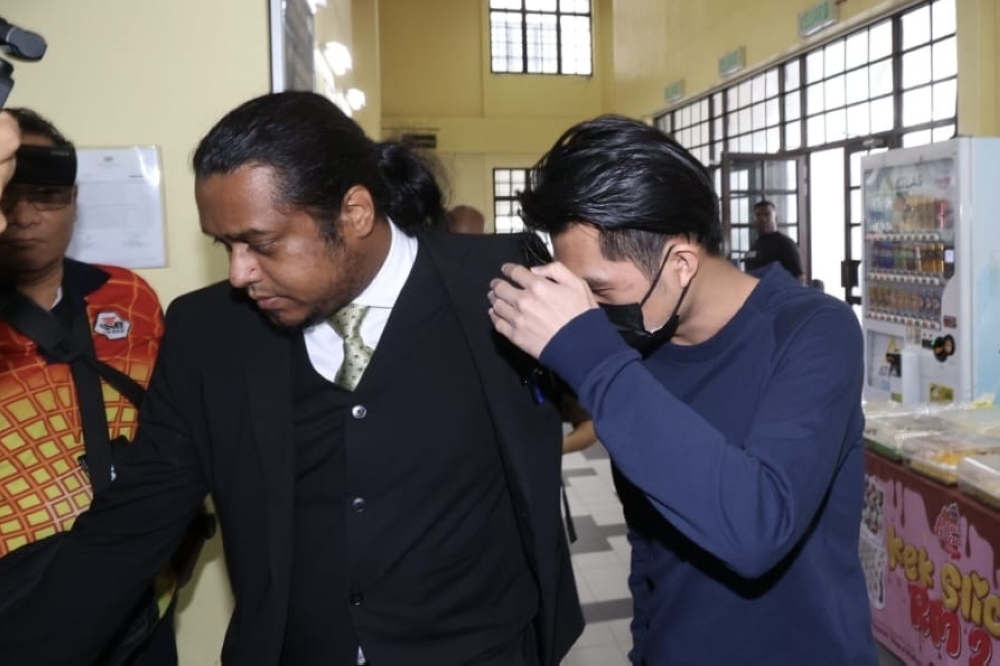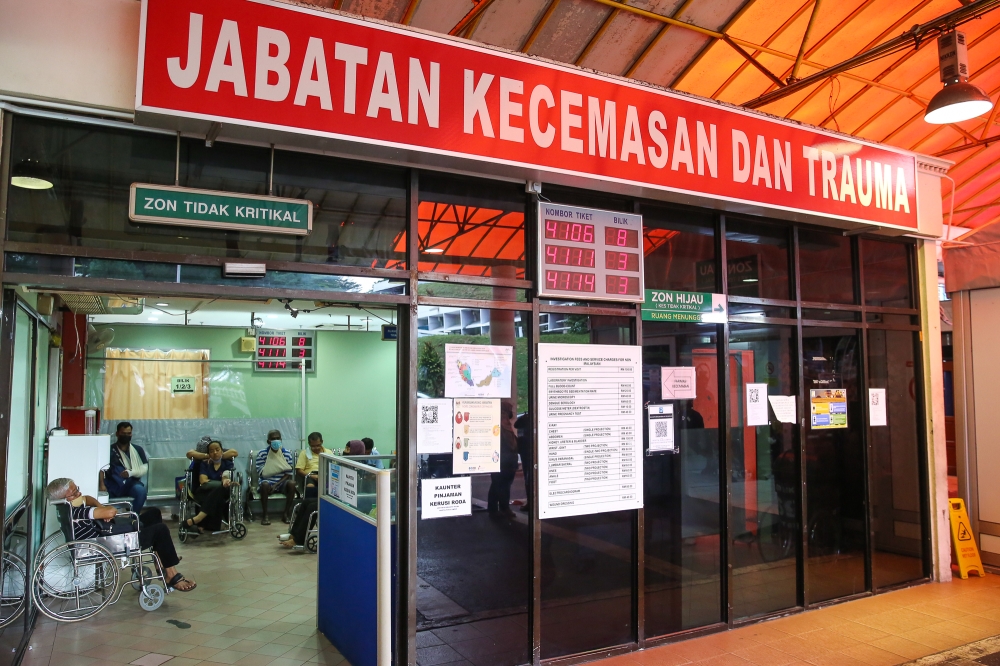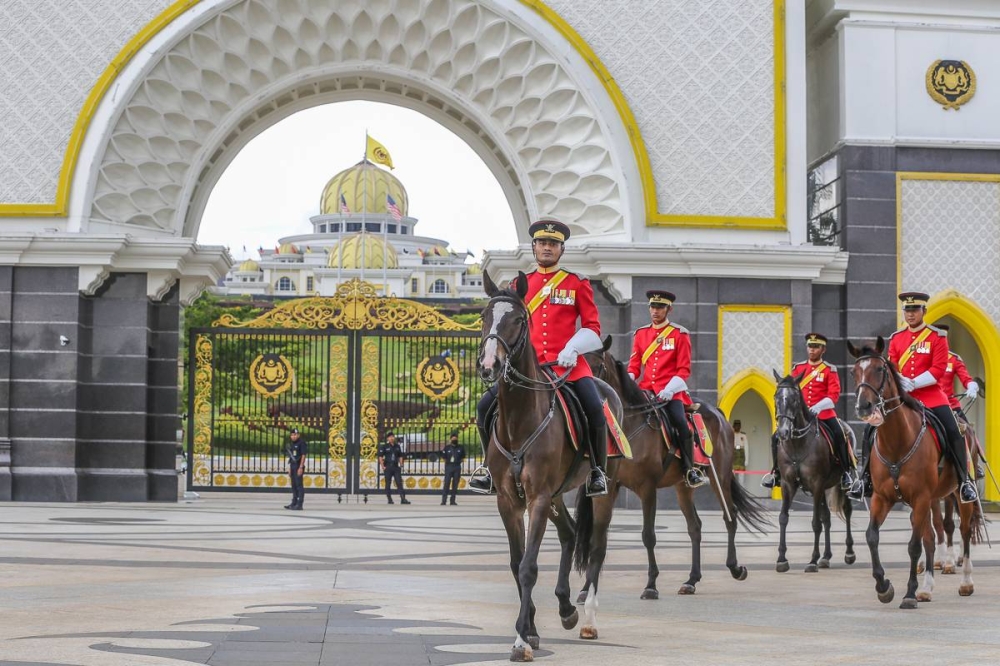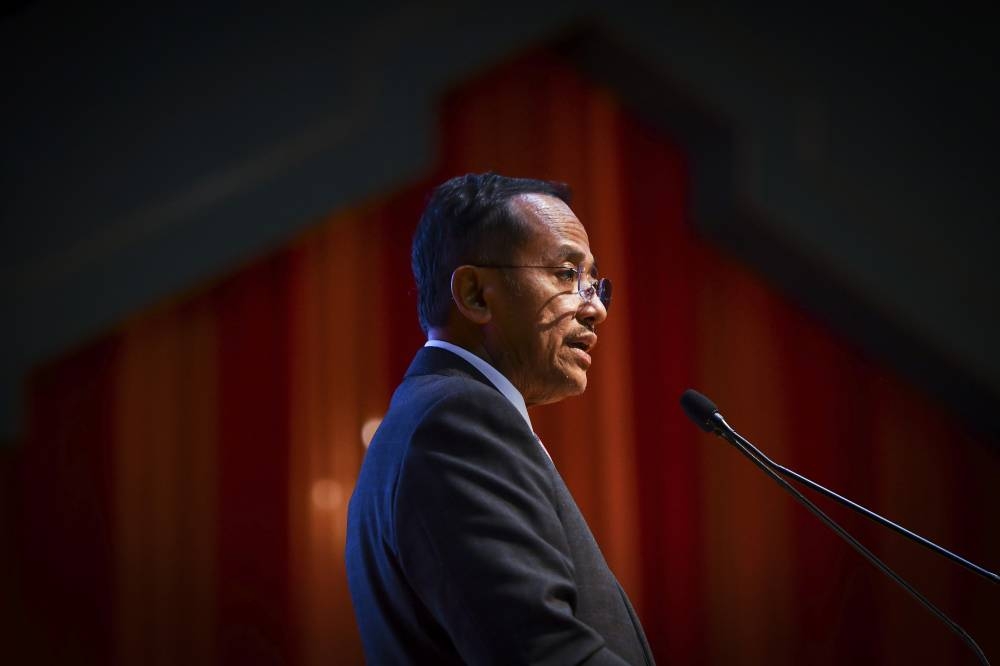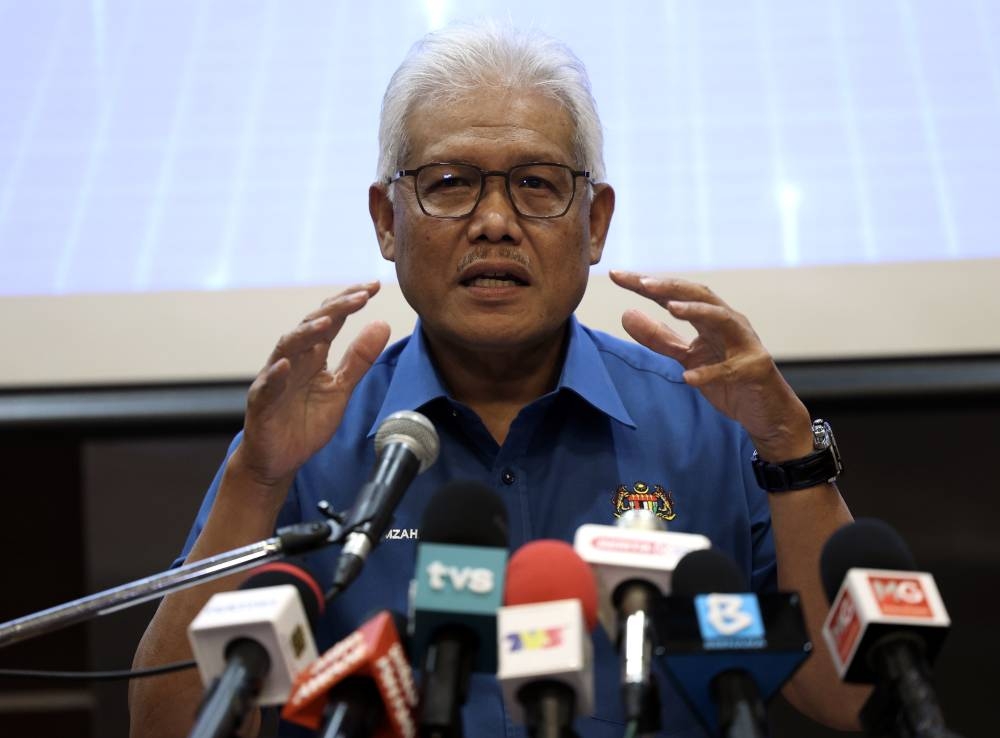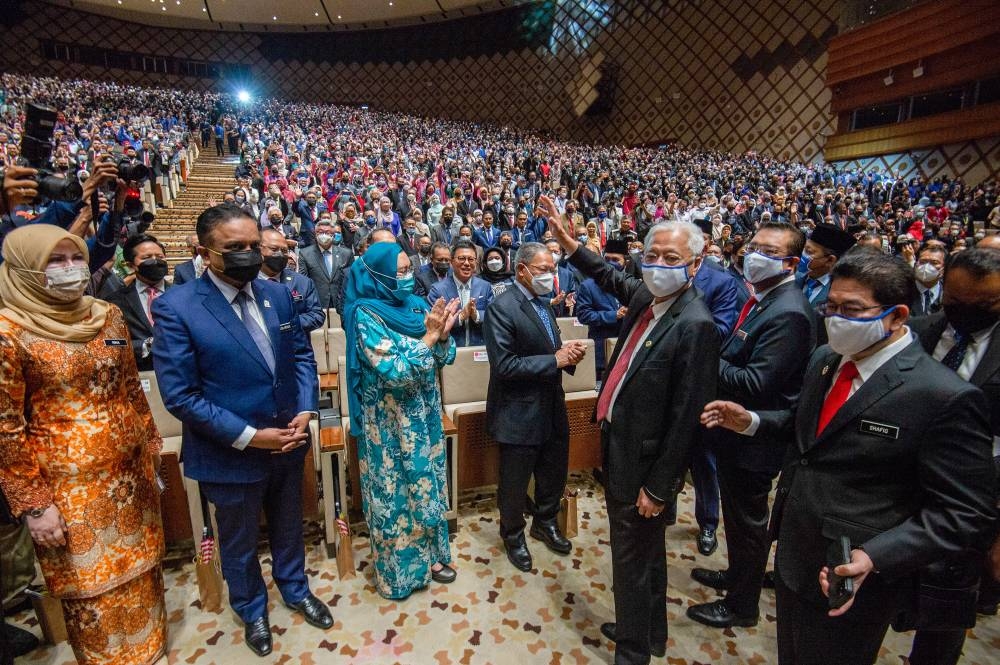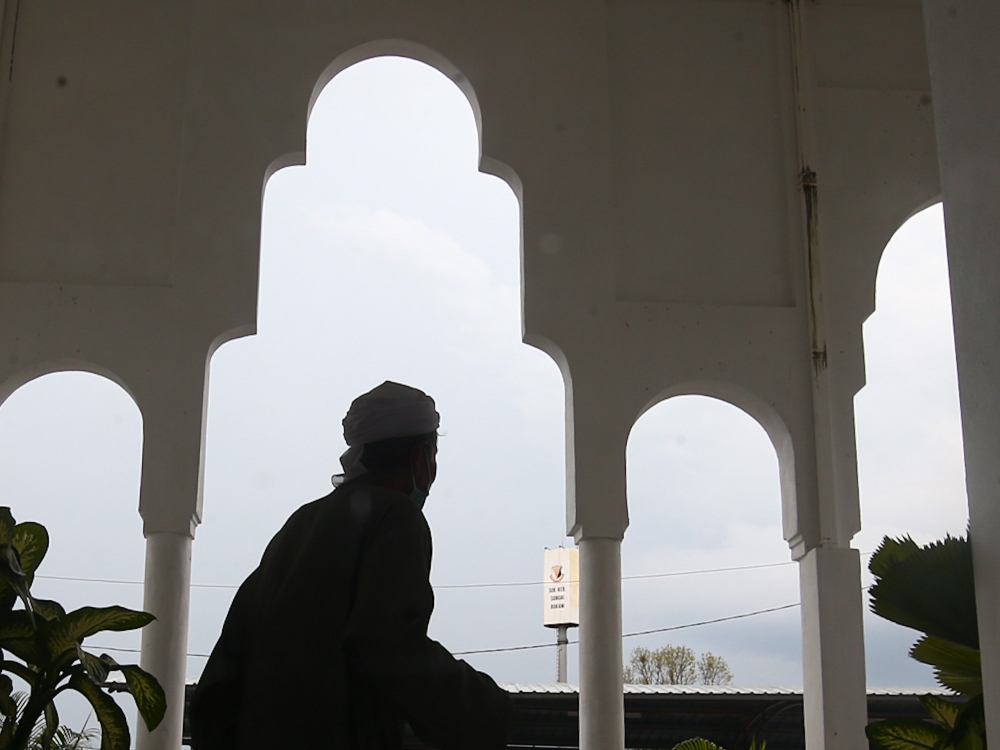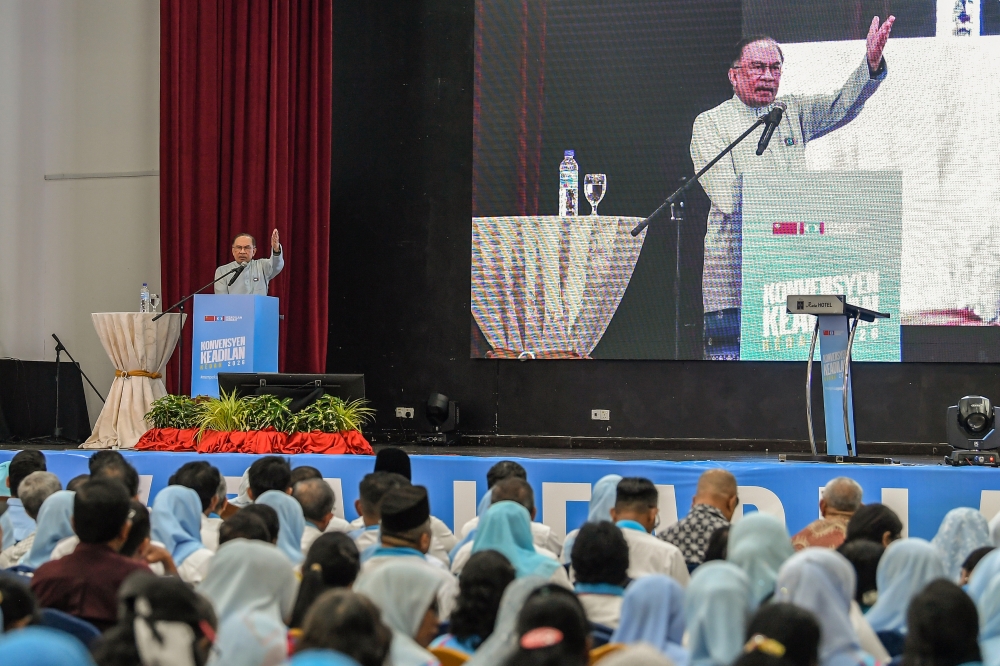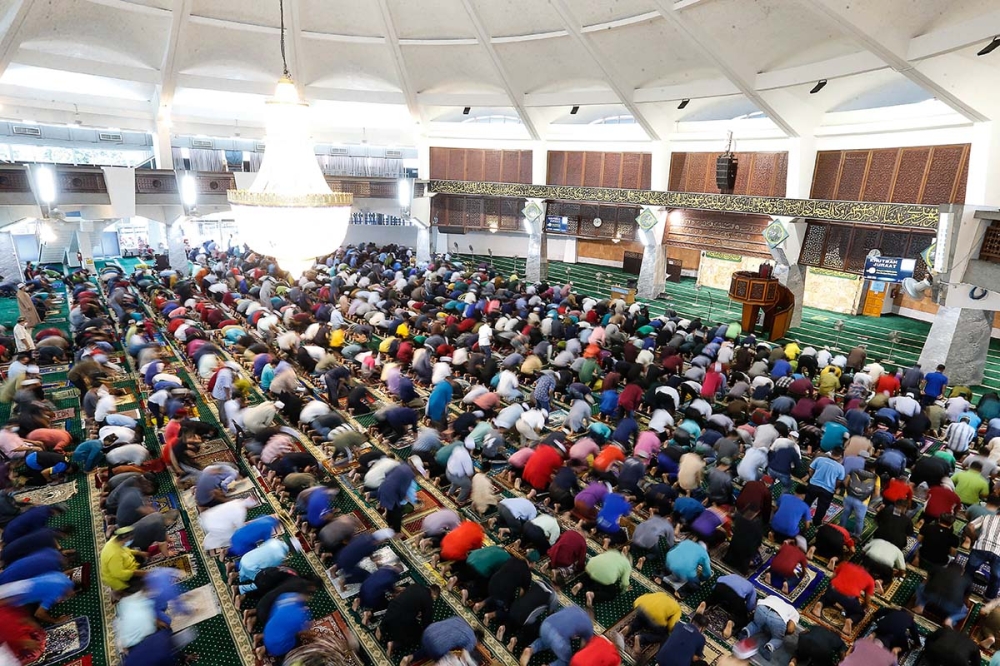KUALA LUMPUR, Oct 13 — On Monday, caretaker prime minister Datuk Seri Ismail Sabri Yaakob finally called for a general election, dissolving the 14th Parliament that has been unprecedented in the events leading up to its dissolution.
The journey to the 15th general election (GE15) began nearly five years ago. In May 2018, Malaysia made history when Barisan Nasional (BN) — the only government the country has known since its independence — fell unexpectedly to Pakatan Harapan (PH).
Since then, the country has witnessed the collapse of two successive coalition governments and the resignation of just as many prime ministers within an 18-month period, deemed the most severe political crisis the country has ever seen.
Malaysia must now hold a general election within 60 days of the dissolution or before December 9, according to Article 55(4) of the Federal Constitution.
To remind readers of the significant events leading to the this, Malay Mail has compiled the chronology of events since 2018 leading up to GE15.
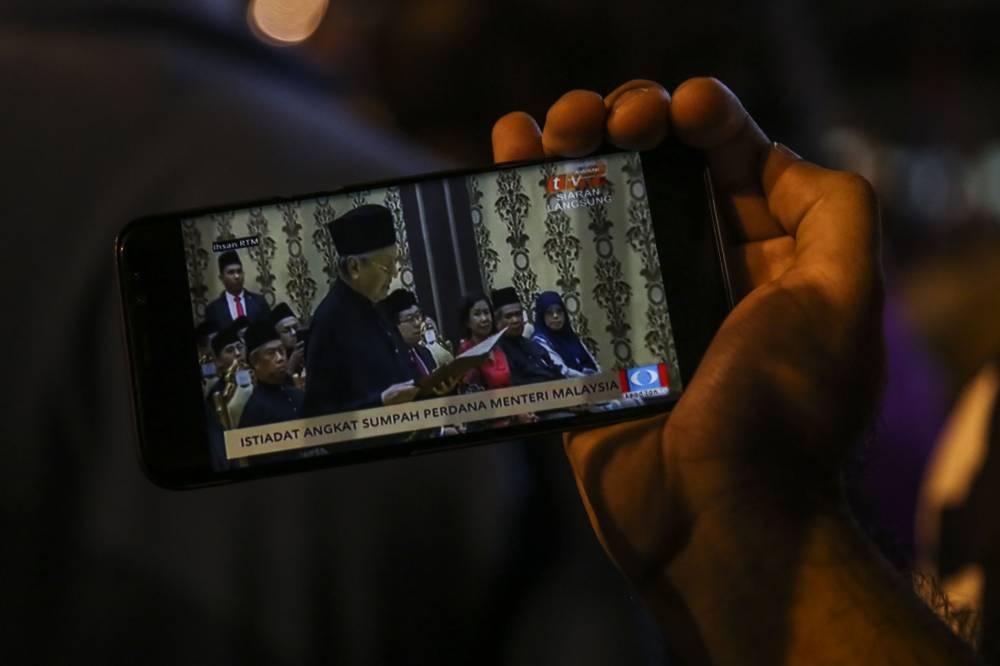
Post-GE14
On May 9, 2018, the PH coalition defeated BN that had ruled Malaysia since 1957, breaking an uninterrupted reign of 61 years.
A day later, Tun Dr Mahathir Mohamad was sworn in as the country’s seventh prime minister — taking up the position for an unprecedented second time and becoming the world’s oldest elected leader — to head the new PH administration.
On May 12, former prime minister Datuk Seri Najib Razak resigned as the BN chairman, after leading the coalition to its only ever general election defeat.
On May 16, PKR president Datuk Seri Anwar Ibrahim was granted a royal pardon and given an early jail release while serving a five year-sentence for sodomy. Anwar was also presented as the immediate successor to Dr Mahathir, in an arrangement that would ultimately doom the PH government.
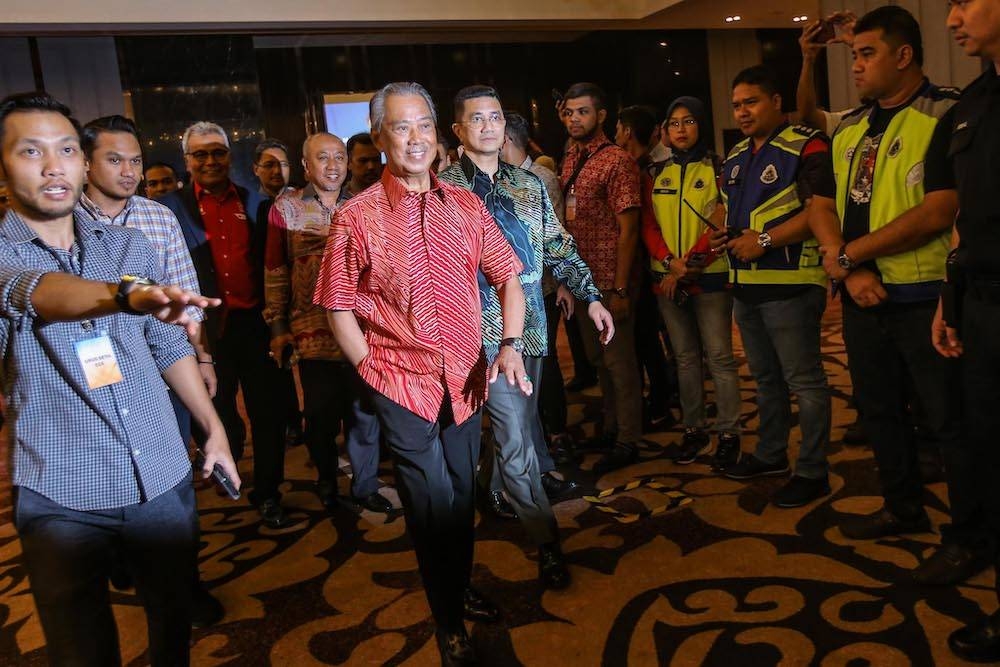
The infamous ‘Sheraton Move’
Roughly two years after PH came into power, demands and pressure for Dr Mahathir to yield control of the government to Anwar became increasingly vocal, in particular those from Anwar’s supporters in light of a pre-election promise made in 2018.
On February 21, the PH presidential council (including Anwar) unanimously agreed that Dr Mahathir should decide on the handover date, seemingly putting to rest ongoing speculations over the contentious power transition.
After the fated PH presidential council meeting, however, several MPs from both coalitions — PH and BN — began discussing forming a new coalition government by claiming majority seats and support in the Dewan Rakyat without going through a general election.
Several PKR MPs led by the PKR deputy president at the time, Datuk Seri Mohamed Azmin Ali, then met with several MPs from PAS and Umno at the Sheraton Petaling Jaya, on February 23, in what would later be known as the “Sheraton Move”.
On February 24, top leaders from PH’s coalition partners — PKR, DAP, and Parti Amanah Negara — held an emergency meeting with Dr Mahathir, whose Parti Pribumi Bersatu Malaysia (Bersatu) later announced its withdrawal from the coalition.
PKR would also announce that it had sacked Azmin and then vice-president Datuk Zuraida Kamaruddin, while 11 MPs including the duo separately insisted that they had resigned from PKR and PH to form an independent bloc in Parliament.
Following Bersatu’s withdrawal, PH ultimately lost its simple parliamentary majority, triggering its collapse as the ruling government after just 22 months in power.
Dr Mahathir would also later announce his resignation as Bersatu chairman and as prime minister on February 24.
With Dr Mahathir’s Cabinet considered dismissed, Yang di-Pertuan Agong Al-Sultan Abdullah Ri’ayatuddin Al-Mustafa Billah Shah then granted an audience to all 222 MPs including political party leaders to gauge their support for a new prime minister on February 25.
On February 26, Dr Mahathir ambitiously proposed for a national unity government under his personal authority, which would draw together lawmakers from rival parties to be appointed as new Cabinet members.
With a caretaker government still in place, Istana Negara announced the Agong was unable to identify any MP who had the majority support to be PM as of February 28.
Separately, an informal coalition comprising BN, Bersatu, PAS, and Parti Bersatu Rakyat Sabah publicly endorsed Bersatu president Tan Sri Muhyiddin Yassin as PM candidate.
On February 29, Istana Negara announced the swearing-in of Muhyiddin as the country’s eighth PM after His Majesty came to the view that Muhyiddin had the majority support, following the representations received from independent MPs as well as the leaders of political parties.
Muhyiddin was sworn in as PM on March 1, before further consolidating his informal political alliance with PH’s rivals into a coalition government that was later renamed to Perikatan Nasional (PN).
Several PH-held states — Johor, Melaka, Perak and Kedah — also experienced changes in their respective state governments as Perikatan gained majorities in the separate state legislative assemblies with lawmakers switching sides.
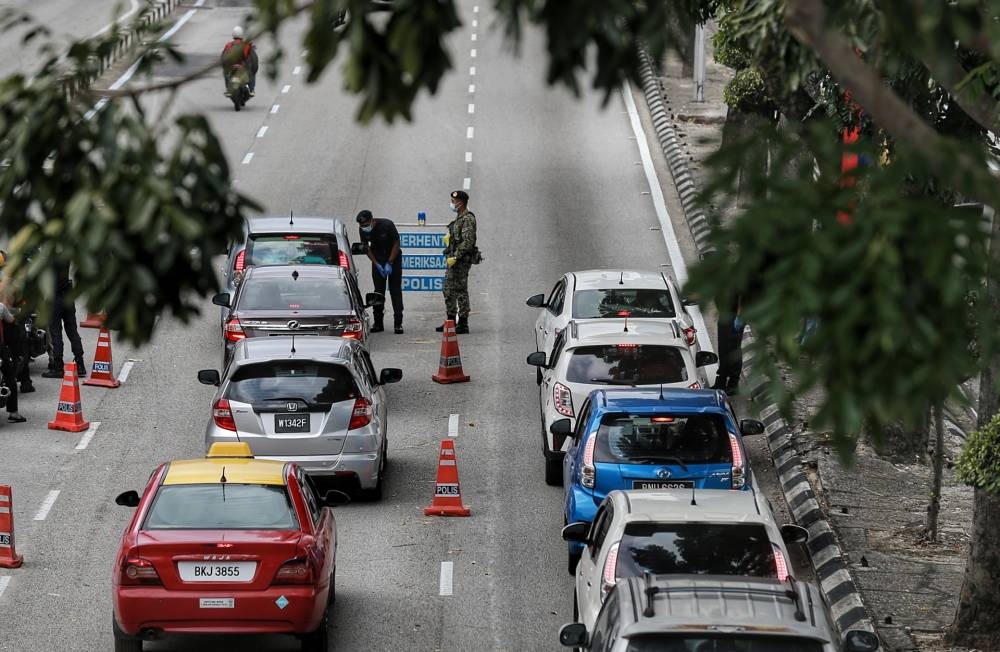
The 2020-21 Covid-19 pandemic
Despite a new coalition government following PH’s collapse, political instability continued throughout 2020 and into 2021, exacerbated by the Covid-19 pandemic.
A nationwide movement control order (MCO) followed by a Proclamation of Emergency was declared as part of the government’s containment measures amid the worsening pandemic, much to the dismay of Opposition lawmakers who sought to table a vote of no-confidence as early as May 2020.
Several Bersatu lawmakers from Dr Mahathir’s faction were sacked by Muhyiddin as well for sitting with the Opposition during a special one-day sitting for the Agong’s speech to open the new session.
On September 23, Anwar then claimed he had commanded a “strong, formidable, convincing majority” and further asserted that the PN government “was practically over”.
Anwar would eventually fail to prove this “formidable majority” by December 2020, and remained the federal Opposition leader until the dissolution of Parliament on Monday.
Between July and September 2020, a political crisis also emerged in Sabah, culminating in a snap state election after the BN and Parti Warisan Sabah-led coalition both claimed to have the majority to form the government, which led to the state assembly’s dissolution.
The Sabah election would also see the change in government, when the Gabungan Rakyat Sabah coalition — composed of Perikatan and BN component parties — won a simple majority.
Moving on, Umno’s Tan Sri Tengku Razaleigh Hamzah later issued a public statement together with Dr Mahathir in rejecting the tabling of the Budget by Muhyiddin’s government, becoming the first from Umno to declare their withdrawal of support in December 2020.
Another Umno lawmaker — Machang MP Datuk Ahmad Jazlan Yaakub — followed suit in announcing his withdrawal of support for the PN government, which ultimately resulted in its apparent support level falling below the 111 needed at the time to maintain the government.
This was never tested in Parliament, however, as attempts to bring votes of no-confidence were frustrated.
On January 12, 2021, the Agong consented to a national Emergency proclamation Muhyiddin sought ostensibly to contain the pandemic, effective from January 12 to August 1, 2021.
With the Emergency proclamation, Parliament was officially suspended and no elections could be held despite the withdrawal of parliamentary support by Umno.
Growing dissatisfaction within the coalition, especially from Umno, further intensified when Padang Rengas MP Datuk Seri Mohamed Nazri Abdul Aziz became the third Umno MP to withdraw support for Muhyiddin.
In February 2021, two PKR MPs — Julau MP Larry Sng and Tebrau MP Steven Chong — turned independent and declared their support to the PN government, thus providing it with just enough support to maintain the majority in Parliament.
A month later, PKR’s then vice president and Kuala Langat MP Xavier Jayakumar announced his defection to PN, offsetting the three earlier withdrawals by Umno.
All three aforementioned PKR MPs would later be associated with a newly formed political party, Parti Bangsa Malaysia.
In July 2021, a minor Cabinet reshuffle took place, which was seen as Muhyiddin’s attempt to placate Umno that had increasingly claimed to be sidelined by his administration despite propping it up.
A day after the reshuffle, Umno president Datuk Seri Ahmad Zahid Hamidi announced his party was officially withdrawing support for Muhyiddin with immediate effect, citing the government’s failure to contain the pandemic, dissatisfaction with the economic response and the extension of the MCO.
However, Umno’s vice-president and newly appointed deputy PM Datuk Seri Ismail Sabri Yaakob said the majority of Umno’s supreme council disagreed with the president’s directive to withdraw support for Muhyiddin amid the current pandemic as it was not a “reasonable move”.
Parliament reconvened on July 26 for the first time in 2021, for a special five-day session but the sitting would turn chaotic and the session cut short prematurely due to positive Covid-19 case detected among lawmakers.

Fall of Perikatan and the schism in Umno
Early in August 2021, Ahmad Zahid again announced the withdrawal of Umno’s support for Muhyiddin, culminating in the resignation of two Umno ministers from the Cabinet, namely Lenggong MP Datuk Seri Shamsul Anuar Nasarah and Parit Sulong MP Datuk Seri Noraini Ahmad.
A day later, Muhyiddin alongside Ismail Sabri held a special address, where the former announced that he would not resign and that he will table a motion of confidence to establish the legitimacy of his position in the Dewan Rakyat in September.
A schism began to emerge in Umno, between Umno MPs who supported Muhyiddin and those who were against it.
On August 13, Muhyiddin — like his predecessor Dr Mahathir — offered a series of major concessions to Opposition parties, including Anwar, in an attempt to form a unity government ahead of an expected vote of confidence scheduled for September.
This was unanimously rejected and Muhyiddin’s Cabinet was ultimately dissolved on August 16 after remaining Cabinet members tendered their resignation to the Agong, putting an end to a tumultuous premiership that spanned just 17 months.
A similar succession process ensued, with His Majesty requesting MPs to nominate a new PM through a statutory declaration on August 18.
Ismail Sabri would then go on to be appointed the ninth PM after receiving a razor-thin parliamentary support from 114 MPs to form his new government on August 20.
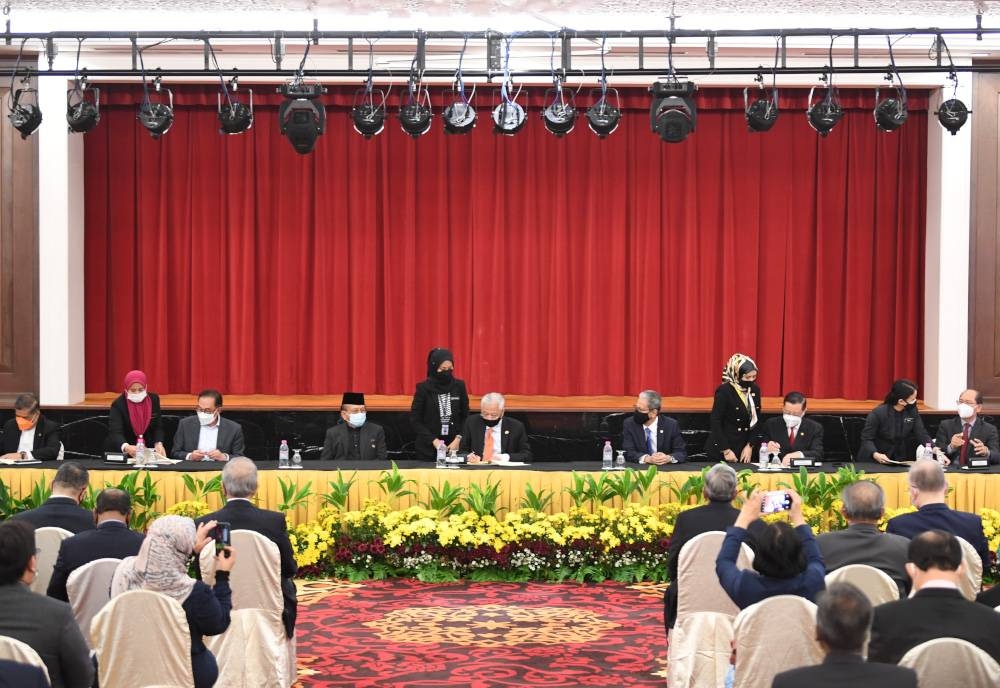
Memorandum of understanding for bipartisanship support
In September, PM Ismail Sabri and Opposition Leader Anwar agreed to sign a memorandum of understanding (MoU) on bipartisan cooperation and proposed reforms for greater political cooperation and stability during the pandemic.
Among the terms set out in the MoU was that a general election will not be held before July 31, 2022.
While political stability seemed to return to normalcy on the federal level, a political crisis was brewing in Melaka, culminating in the Melaka state by-election after four assemblymen withdrew their support for the chief minister on October 4.
BN would later go on to win the snap election with a comfortable two-thirds majority, with Datuk Seri Sulaiman Md Ali reappointed as chief minister.
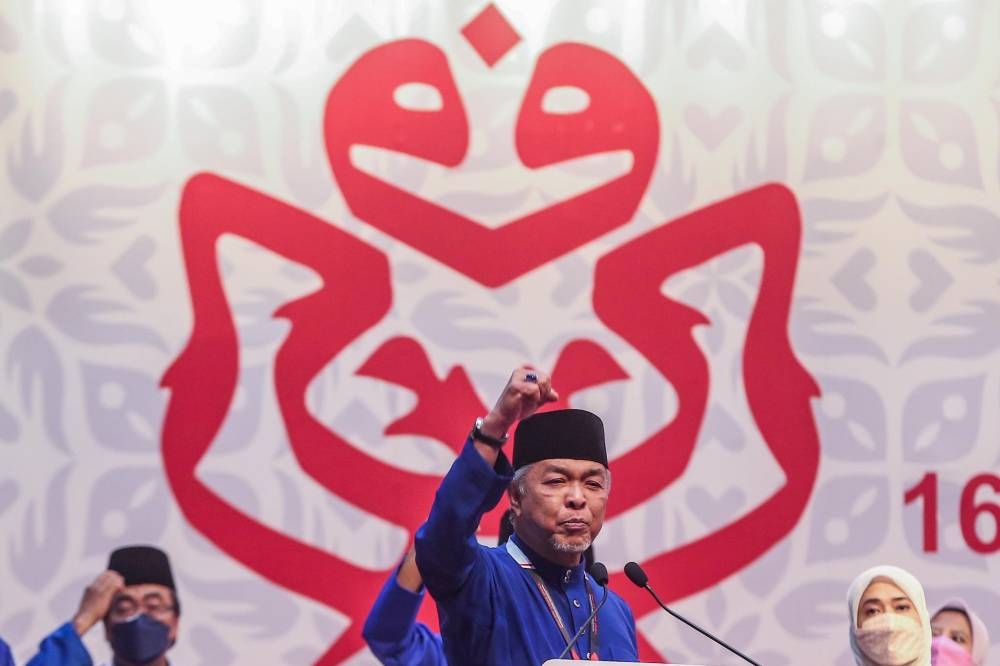
Widening rift in Umno’s leadership
Johor would become the latest state to suffer a political instability following the death of one its assemblymen, which left mentri besar Datuk Seri Hasni Mohammad’s government with just one seat more than the Opposition.
On March 12, BN would continue its landslide winning streak in recent state elections by securing a two-thirds majority in the Melaka state assembly.
In June, sacked Umno supreme council member and Pasir Salak MP Datuk Seri Tajuddin Abdul Rahman revealed an alleged plot to support Anwar to become the prime minister by several Umno MPs led by Ahmad Zahid back in May 2020.
In response, Ahmad Zahid was quoted as saying Tajuddin himself should “definitely know” what he has done for being unceremoniously removed as supreme council member.
Tajuddin would later go on to pre-empting the official endorsement of Ahmad Zahid by naming himself an election candidate for GE15 despite being served a six-years suspension from the party in September.
Separately, Ismail Sabri had in August denied that he had been threatened with expulsion from Umno if he refused to bow to demands from its supreme council to call for a general election this year.
As the first prime minister not to be the head of a political party, Ismail Sabri has been under enormous pressure from Umno to call for an early general election.
Ahmad Zahid was seen riling up Umno delegates at the recent Umno special general assembly on August 27 to implore Ismail Sabri to give in to party whims, amid massive jeering from the crowd when the former mentioned the latter’s name.
In recent months, Umno leaders have been vocally pushing for polls to be held this year to leverage BN’s landslide victories in the Johor and Melaka state polls.
On October 10, Ismail Sabri announced the dissolution of Parliament to pave the way for early polls as the country prepares to face the annual monsoon floods.
The Election Commission will meet on October 20 to decide the dates for nomination and polling, which is now expected to be in the middle of November.



